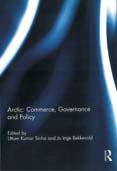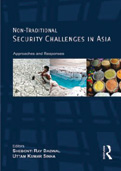Uttam Sinha Chairs Session on India’s Neighbourhood at a Conference in Delhi University
Senior Fellow, Manohar Parrikar IDSA Dr Uttam Sinha chaired a session on India's Neighbourhood at a conference organised by the Political Science Department of Delhi University on 10 January 2025.











